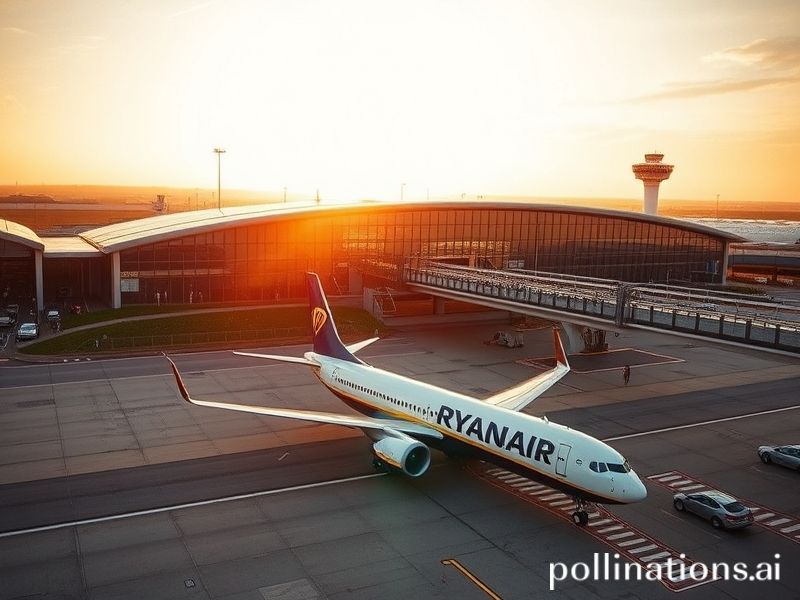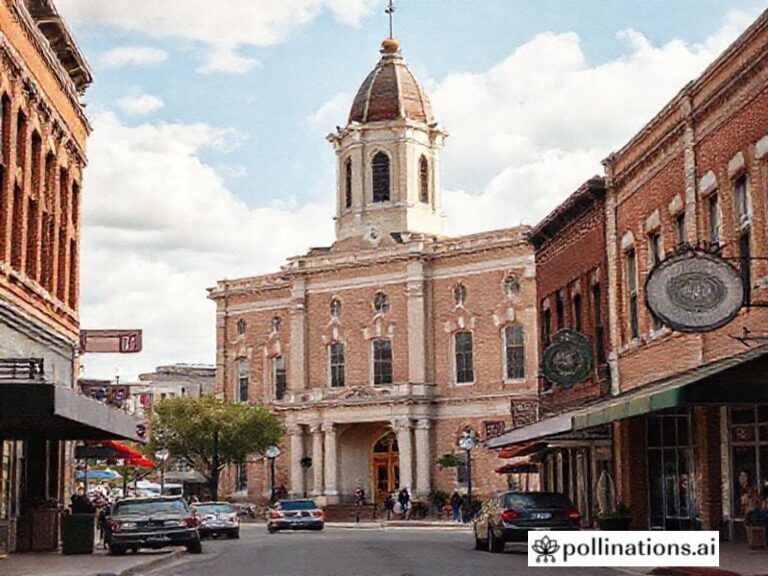Luton Airport: The World’s Most Unlikely Global Crossroads (and Why It Matters)
Luton Airport: The Tiny Terminal That Could (and Probably Shouldn’t)
Luton, Bedfordshire – Just 30 miles north of London, a modest ribbon of tarmac sprouts from a landscape best described as “aggressively beige.” This is London Luton Airport, the budget airline’s answer to the question, “How cheaply can we simulate international travel while still charging for oxygen?” From the outside, it’s a prefab Lego set assembled during a caffeine bender. From the inside, it’s a pop-up sociology experiment on what happens when 18 million annual passengers discover that the phrase “world-class hub” is, in fact, negotiable.
And yet, Luton matters—far beyond its corrugated sheds and £4.50 bottles of water. In an age when globalization is supposedly in retreat, this low-rise warehouse is quietly stitching together continents. Every morning, a Ryanair 737 groans toward Gdańsk; by noon, an EasyJet A320 hops to Tel Aviv. In the departure lounge, Ghanaian traders compare WhatsApp exchange rates while Slovak au pairs practice French on Moroccan security guards. It’s the United Nations if the UN met in a parking garage and charged extra for baggage.
The airport’s numbers are almost poetic in their banality: 150 destinations, 30 countries, one terminal built in 1999 and already wheezing like a chain-smoking accordion. While Heathrow polishes its chandeliers and Dubai plants indoor rainforests, Luton doubles as a case study in post-Brexit resourcefulness. Need more capacity? Slap up another tent. Congestion? Add a £2 drop-off fee and call it “green travel.” It’s the kind of ingenuity that makes economists nod approvingly and poets weep.
Of course, greatness thrust upon Luton is relative. Its single runway is a runway in the same way a supermarket aisle is a boulevard: technically accurate, spiritually misleading. Still, aviation consultants speak of Luton in hushed tones, as though it were a scrappy fintech startup that discovered how to monetize despair. When Wizz Air needed a European foothold, it chose Luton, seduced by 24-hour operations and a willingness to define “customer service” as a self-service barcode scanner. The result? A fleet painted in bubble-gum purple ferrying Eastern Europeans to the gig economies of the West, a migratory pattern ornithologists might label “neo-liberal geese.”
The ripple effects are global. Each new route redraws labor markets: Nepalese hospitality students, Polish plumbers, Filipino nurses all converge here, their futures vacuum-sealed into 10kg carry-ons. Meanwhile, carbon counters wring their hands—Luton’s expansion plans promise a 50% passenger increase by 2033, which is eco-speak for “apocalypse on layaway.” The airport’s solution? A tram line powered, presumably, by righteous indignation and the tears of climate scientists.
Still, cynicism is too easy. Watch the departures board flicker: Sharm el-Sheikh, Reykjavík, Enfidha. These aren’t just pixels; they’re escape hatches. For every stag party vomiting into a duty-free bag, there’s a Somali grandmother flying home with diabetes medication, or a Syrian refugee touching EU soil for the first time. Luton is the global south’s northernmost suburb, a portal where hope and heartburn share a plastic seat.
And so the planes keep coming, guided by air-traffic controllers who sound like they’ve just finished a double shift at a call center. Somewhere above the M1, a Boeing 737 banks toward Tenerife, trailing a contrail of cheap sangria dreams. Below, the airport’s corrugated roof glints in the anemic English sun, a monument to our collective willingness to endure almost anything—cramped knees, overpriced sandwiches, existential dread—for the promise of elsewhere.
In the end, Luton Airport is not just a place; it’s a warning label on the side of modernity: “Contents may expand under pressure. Side effects include wanderlust, swollen ankles, and creeping awareness that the world is smaller, cheaper, and slightly stickier than advertised.” Fasten your seatbelts, dear passengers. We’re all connecting flights now.







